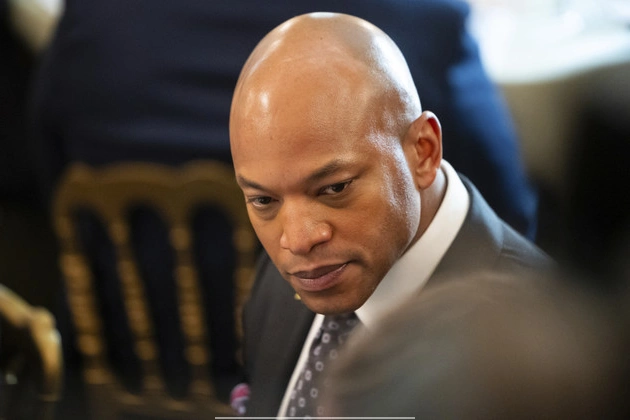
Wes Moore’s Critique of President Trump
Maryland Gov. Wes Moore, a combat veteran with experience in the Army’s 82nd Airborne Division in Afghanistan, recently voiced his concerns about President Donald Trump’s approach to the ongoing conflict between Israel and Iran.
In a statement, Moore expressed disappointment at what he perceives as a ‘lack of seriousness’ in Trump’s handling of such critical issues.
Trump’s Ambiguous Statements on Iran
Moore’s comments followed President Trump’s ambiguous remarks at the White House, where he issued an ‘ultimate ultimatum’ to Tehran regarding their nuclear program.
Despite the gravity of the situation, Trump’s statements seemed to vacillate between potential action and indecision, leaving many uncertain about the administration’s true intentions.
The Stakes in the Mideast Conflict
As a rising figure in the Democratic Party and a speculated contender for the 2028 presidential race, Moore emphasized the seriousness of the ongoing conflict in the Middle East.
He highlighted the importance of approaching these issues with the gravity they deserve, emphasizing that people’s lives are at stake.
Moore’s Criticism of Administration Policies
Moore’s critique of the Trump administration extends beyond the Iran crisis. He previously condemned the administration’s actions against federal workers, citing threats to national security and global competitiveness.
His outspokenness on such issues has positioned him as a vocal opponent of policies he views as detrimental to the nation’s interests.
Future Political Aspirations
While denying any immediate plans for a presidential run, Moore’s recent public appearances in key political states suggest a growing national profile.
His engagements in South Carolina, Pennsylvania, and other significant locations indicate a strategic effort to expand his influence and explore potential future opportunities.
Continued Advocacy and Public Engagement
As the nation commemorates Juneteenth and grapples with complex societal issues, Moore’s advocacy for criminal justice reform and his outreach to marginalized communities underscore his commitment to meaningful change.
His actions, including pardoning individuals convicted of minor cannabis offenses and engaging in critical dialogues on race-based inequality, reflect a multifaceted approach to governance and public service.
Conclusion
Wes Moore’s outspokenness on critical issues, his critique of administration policies, and his strategic public engagements all contribute to his evolving political narrative. As the nation observes key historical moments and navigates complex challenges, Moore’s voice adds a compelling perspective to the ongoing discourse.











